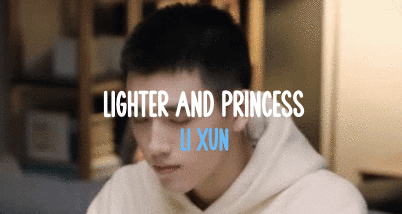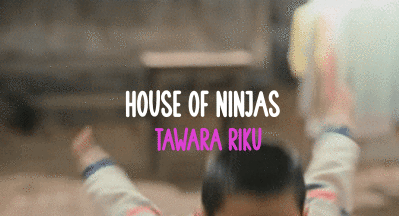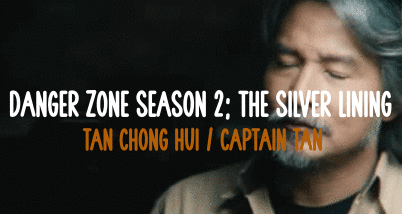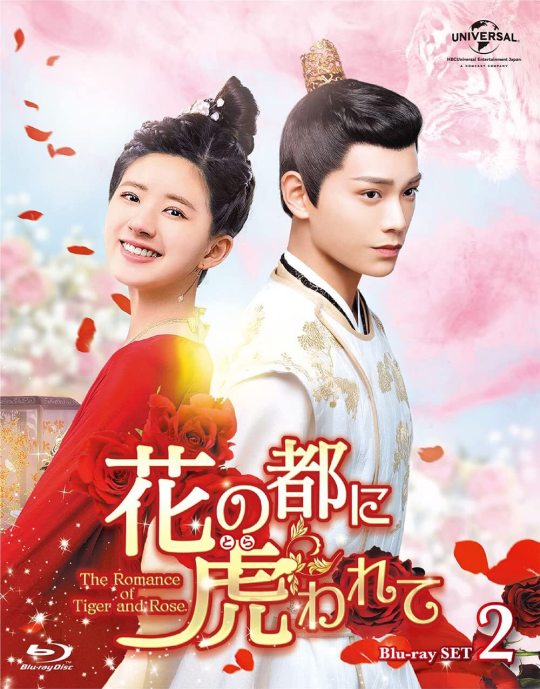#xun zi
Explore tagged Tumblr posts
Text


Another eepy esper! Welcome, Zi He! (Her profile lists her favourites as petting cats and sleeping)
#my art#my fanart#dislyte jacob#dislyte#dislyte hilda#dislyte feng xun#dislyte amir#dislyte zi he#eepy espers club
176 notes
·
View notes
Text

I saw this chart by @gallusrostromegalus and just had to do my own one with some of the characters of Pages and Petals - it was also a good practice to finally draw them!
Also Ditto and I noticed two peculiar lines but mostly the "And I'm making that everyone else's problem" because ... that's it. That's the whole story. Those three are the ones who push and pull the story :'D
Blank chart under the cut

#Pages and Petals#Pages and Petals art#oc: Pei Seng Ran#oc: Xun Ji Hui#oc: Xun Hong Zai#oc: Shi Shi#oc: Yuan Sun Hou#oc: Tse An Ju#oc: Xun Bai Dan#oc: Lui Zi Tian#oc: Yu Men De
11 notes
·
View notes
Text










My Favorite Male Characters
#danger zone season 2 the silver lining#tan chong hui#captain tan#lighter and princess#li xun#dragon zakura 2#fuji ryo#crash landing on you#ri jung hyuk#mafia the series: guns and freaks#Thaen#bloodhounds#hwang yang jung#the lost tomb 2#wang pang zi#pit babe#jeff#house of ninjas#tawara riku#yong jiu grocery store#yang jun long#thai drama#taiwanese drama#kdrama#korean drama#cdrama#chinese drama#jdrama#japan drama#my favorite male characters
17 notes
·
View notes
Text
Lang Shilong’s “Lang Zi says” gives the same vibe as when Chinese people make up random quotes and attribute them to Lu Xun
#‘Lu Xun once said’ handshakes ‘Lang Zi says’#hc: Lang has read every one of Lu Xun’s books#shi long lang#ace attorney
25 notes
·
View notes
Text










Cdrama: The Princess and the Werewolf (2023)
Gifs of Ending of cdrama "The Princess and the Werewolf"
[The Princess and the Werewolf] EP01 Forced to Marry the Wolf King Wu Xuanyi_Chen Zheyuan YOUKU
Watch this video on Youtube: https://www.youtube.com/watch?v=SkEOssdu-7g




#The Princess and the Werewolf#Go Princess Go! 2#郎君不如意#Season 2#Tai Zi Fei Sheng Zhi Ji 2#Lang Jun Bu Ru Yi#Gong Zhu Shang Jia Ji#太子妃升职记 2#2023#cdrama#chinese drama#Youku#Viki#youtube#Wu Xuan Yi#Chen Zhe Yuan#Wang Lu Qing#Shi Zi Xun#Yang Chuan Bei#He Wen Jie#Xi Er Li#Wang Mu Yao#Leng Zhong Yi#Yu Hui Tao#episode 1#1st episode
2 notes
·
View notes
Text
Some notes on practicing listening skills:
Doing this chinese listening experiment (at 445 hours listened now in this year 2025), all the prior listening from the past 4 years I did really DID help as well.
It's why I debated if those prior estimated ~547 hours made a difference, then decided they definitely did. So that's 547 hours over the past 4 years 2020-2024, of extensively watching dramas, extensively listening to audiobooks, and extensively listening to audiobooks or TTS while reading along. I did not count time spent listening to cdramas with English subtitles on, though that's surely a few hundred hours on its own and may have also helped.
My listening has improved a TON this year since starting the chinese listening experiment. I can hear all words slower and clearer, it's very easy now to hear audio and know what pinyin to type to look something up.
But the prior 547 hours though caused a lot of foundational improvements that I am now relying upon. All the work I did going through dong-chinese.com's Pinyin Pronunciation Guide in year 1, year 2, and then refreshing every 6 months or so, helped me SO much in parsing shi/si zhi/zi chi/ci and zi/si/ci and all the other initials and finals. I still struggle to parse between xun and shun, but I can only imagine it'd be much more difficult if I never had the initial practice listening to the difference between xun and shun. I got practice hearing accents from Beijing, Dongbei, Shanghai, Taiwan, Guangdong, and so when I started listening to podcasts this year it felt like adjusting to listening to a British person as an American, but not an insurmountable hurdle. I already knew certain sounds could sound X different in certain accents, and could notice and hear it and make an adjustment that "oh in this accent those are X words." And I had SO MUCH practice parsing syllables, word units of 1-hanzi, 2-hanzi, 3-hanzi, 4-hanzi chengyu/sentence chunks. A lot of the word parsing skills probably came from reading as I listened. And from grammar knowledge. Its easier to tell if a word ends, if I hear an adjective marker like *de or if I hear a verb ending like zhe, guo, dao. It's easier to tell when something is Chengyu or a weird phrase if you've gotten used to running into them. Its easier to guess if a word/phrase chunk is meaningfully connected or separate concepts if you're very used to hearing them (thanks dramas) and reading them (thanks webnovels). There's some Chinese accents that read word/phrase chunks in different lengths and emphazise them, other accents where each syllable is around the same length. All of these parsing sound and phrase boundary skills I developed over the past 4 years.
You know how languages liaison the words in phrases, and being able to link sound chunks into one meaningful chunk 对不起 不明白 知道了 哪怕是 皱了皱眉 helps so much with understanding.
A total beginner would need to not just get used to tones and tone sandhi (which I still am doing), they'd need to practice parsing hearing zhoulezhoumei and recognize 1. Its all one connected action, 2. The actual initials and finals so they could type it (to look it up or use it in future), to have a chance of linking it to its hanzi (if they link with sound components which I mentally tend to) 3. It's not a chengyu, its an action. Or 哪怕是 hearing napashi and realizing the shi is 是 and not a word ending in shi. Noticing 就是 is not 九十 because even if you struggle to discriminate tones, you know the position of the word is normal for 就是 and would be an unlikely place for numbers in that sentence. Parsing names from other objects has been one of the improvements I made since starting the chinese listening experiment, which means it took over 547+ hours to even develop lmao! Listening skills are tough!
All I'm trying to say is there is a LOT of ground work in parsing sounds of another language, in listening skills development.
I do think all the listening activities that get often recommended are all helpful:
1. Going through a pronunciation guide with audio. Even if the alphabet is "similar." Doing this with French earlier could have helped me so much ;-; Doing this with Chinese saved me so many years of struggle I could've had with shi/si/zi etc.
2. Intensive listening - listening and looking words up, trains you to recognize word/phrase boundaries and chunks, and correct spelling. This could be looking up every single word as you lsiten to something, following along with a transcript, or a more chill activity like watching a drama with English subtitles and pausing to look up a word/phrase every once in a while (which is what I did in year 1 of study, and I really recommend beginners and people considering learning to do this low effort quick activity if they're interested in learning a language - you can pick up many basic phrases this way).
2. Listening while reading along - again helps match spelling to the sounds. In hanzi's case, helps match hanzi sound radicals and components to the word, and visual word to the sound. Very helpful for recognizing grammar patterns and word/phrase chunking of meaning. Doing this, along with relistening to the same audio while not reading, reinforce each other.
3. Relistening - invaluable. Either relistening to 1 small sentence or phrase several times, or longer audio several times. There's never too many times to relisten, the more the better. Absolutely one of the best pieces of advice I found on how to improve listening skills.
4. Extensive Listening - more listening always helps. Just like relistening, you can always do more and it will always help.
5. Shadowing - speaking after audio you hear, for improving listening you do not need to record your speaking and compare to the original audio (although that will also help listening). Forcing yourself to speak, with the goal of sounding as similar to the original, really makes you consider WHAT you heard. And if you say it wrong, can help you notice what element you are struggling to hear or simply can't differentiate yet.
6. Practicing minimal pairs - this is finding 2 syllables/words/phrases that sound very similar, and listening to both back to back, trying to differentiate them.
7. Listening to words with the same pronunciation in example sentences. When you find words with the Same Pronunciation (like English "No I don't want to" and "I know that!") And listening to those same-pronunciation words in Example Sentences - so you can start noticing which context each word appears more often in, what kind of position it has in the sentence, and hopefully mix up the words less when listening.
8. Listening to new words (or confusing words) and phrases in sentence examples. I do this with most new words I look up, I just find an example sentence in Pleco and read/listen to it. It helps clarify the kind of context and position it's more likely to be in. Like the 就是 versus 九十 example, those phrases just are not likely to be used the same in a sentence. Or 目前 (usually in a time-word position) versus 木钱 (i would guess this were a name if i ran into it since these aren't 1 word combined and wooden-money is an odd thing to exist in a sentence). Even if you never look up if a word is an adjective, noun, verb, subject, object, or any other grammar info, reading/hearing a word in an example sentence can help give you an intuitive idea of that kind of stuff regarding a word/phrase.
6 notes
·
View notes
Text
Allora mentre alcuni anziani sono sulla via per Riga, Lettonia, per gli Europei Master, cadetti e Juniores del Judo fanno medaglia ai campionati italiani, sotto la guida del Maestro Mauro D'Angelo. Come nella migliore tradizione, ogni bushi che si rispetti è anche calligrafo e poeta. Lo stesso Jigoro Kano praticò queste arti, che si possono considerare parte della 'via'.
Tratto da Stevens, John. The Way of Judo : A Portrait of Jigoro Kano and His Students. First edition, Shambhala, 2013.
"Dopo il judo del Kodokan e l’istruzione, la terza grande passione di Kano era la calligrafia. Come già detto, quando Kano era allievo presso l’Accademia Ubukata, doveva consegnare ogni giorno tre quaderni di esercizi di calligrafia. Ubukata, calligrafo di grande prestigio, lo formò nei fondamenti di quest’arte. A casa, Kano si esercitava usando fogli di giornale, solitamente chiacchierando con la moglie mentre scriveva, finché la carta non diventava completamente nera. Quando la famiglia si trasferì in una casa più grande, Kano si riservò una stanza apposita per la calligrafia. Durante la sua vita, scrisse a pennello migliaia di opere per amici, studenti e per essere esposte nei dojo e negli istituti di istruzione. Non rifiutò mai una richiesta di calligrafia, indipendentemente da quanto fosse impegnato. A volte scriveva perfino nell’ufficio del capostazione mentre attendeva un treno. L’ultima notte che trascorse al Kodokan lavorò fino al mattino per completare una montagna di calligrafie promesse.
C’è un detto: “I grandi calligrafi non producono molte opere formali”, poiché un’eccessiva produzione ne ridurrebbe il valore, sia in termini economici che di apprezzamento. Quando altri professori gli fecero notare questo, Kano rise e rispose: “Considero la mia calligrafia come un libro di testo. Voglio che tutti possano avere un mio scritto.”
Fino circa ai sessant’anni, Kano usava lo pseudonimo Konan (甲南), un riferimento al suo luogo natale, che significa “a sud dei monti Rokko”. Dai sessant’anni in poi adottò lo pseudonimo Shinkosai (進乎斎), ispirato a un macellaio taoista citato nel terzo libro dello Zhuangzi: l’imperatore notò che ogni volta che il suo macellaio tagliava la carne, questa sembrava separarsi da sola, come se non fosse necessario tagliarla. Quando gli chiese il segreto della sua arte, il macellaio rispose: “Seguo il Tao, non la tecnica. Ho imparato a far seguire al coltello le linee naturali della carne, così da non incontrare resistenza. Il coltello di un macellaio comune va cambiato ogni mese. Un buon macellaio lo usa per tre anni. Il mio è in uso da diciannove anni.” Shinkosai significa quindi: “Seguire la Via [del judo], non la tecnica [del judo]”.
Negli anni Settanta, Kano adottò lo pseudonimo Kiissai (帰一斎). Il filosofo cinese Xun Zi affermava: “I re hanno metodi diversi per governare, ma un solo principio fondamentale.” Verso la fine della sua intensa e ricca vita, Kano sentì il bisogno di tornare a quell’unico principio: la Via del ju.
Kano scrisse poche poesie. Le sue calligrafie erano composte da citazioni dei classici cinesi, alcune frasi zen e motti personali. Il suo allievo Muneo Shiotani compilò un elenco delle opere calligrafiche incorniciate di Kano esposte nei dojo e nelle scuole di tutto il Giappone. Ecco i risultati, in ordine di frequenza:
Jundo Seisho (順道制勝) – “Seguire la Via Porta alla Vittoria.” Jundo è un concetto confuciano che indica “comportamento corretto”, “mantenere alti principi”, “seguire il corso naturale delle cose”. In judo, seisho significa “ottenere la vittoria”. In ambito educativo, significa “raggiungere l’obiettivo” o “ottenere grandi risultati”. Con ottantuno esempi, è di gran lunga la calligrafia più comune. Kano vi aggiungeva talvolta un secondo verso: Gyofu Gaijin (行不害人) – “Il miglior comportamento non nuoce a nessuno”.
Seiryoku Zenyo (精力善用) – “Sforzo concentrato, massima efficienza.” Sessantasei esempi.
Riki Hittasu (力必達) – “Lo sforzo garantisce risultati.” Anche interpretabile come “Sforzati e arriverai.” Ventuno esempi.
Shinjin Jizai (心身自在) – “Mente e corpo perfettamente liberi.” Jizai significa “liberamente” o “con assoluta naturalezza.” Uno stato ideale dove pensiero, parola e azione sono in armonia. Dodici esempi.
Jinryoku (尽力) – “Sforzo totale.” Undici esempi.
Joko Ekise (成己益世) – “Perfeziona te stesso, migliora la società.” Se vuoi migliorare il mondo, inizia da te. Otto esempi.
Zenryoku Saizen Katsudo (精力最善活用) – “Usa il massimo impegno per la massima efficacia in ogni azione.” Cinque esempi.
Jita Kyoei (自他共栄) – “Benessere e mutuo vantaggio.” Cinque esempi.
Ketsuko Ketsujo (竭己竭成) – “Dai tutto per realizzare tutto.” Cinque esempi.
Shuko Chijin (修己治人) – “Lo sviluppo di sé crea il cittadino ideale.” Cuore del pensiero confuciano: coltivando se stessi si migliora la società. Cinque esempi.
Altri temi preferiti da Kano, ordinati in base al numero di caratteri nel verso:
Tando (探道) – Cerca la Via.
Wakei (和敬) – Armonia e rispetto.
Waku (和煦) – Armonia e calore.
Wakyo (和協) – Armonia e cooperazione.
Ryuho (流芳) – Lascia un segno (alle future generazioni). Letteralmente: “Fa scorrere il tuo profumo.”
Renketsu (廉潔) – Integrità.
Jinki (盡己) – Dai tutto te stesso.
Kinzeraku (勤是楽) – Il movimento è gioia.
Gabogo (我忘吾) – Dimentica te stesso.
Zenshokyu (善処窮) – Trova il miglior posto per essere.
Jinki Shisei (盡己竢成) – Grande sforzo, grande risultato.
Teisho Jidan (抵掌而談) – Persuasione, non aggressione.
Wachu Kyodo (和衷協同) – L’armonia fa miracoli.
Shinjin Mumu (眞人無夢) – Il saggio agisce, non sogna.
Kohi Shihyo (光被四表) – Diffondi la luce in tutte le direzioni.
Shuitsu Muki (主一無適) – Concentrati sull’obiettivo.
Jiga Sakko (自我作古) – Costruisci sul passato per creare il presente.
Jikyo Fusoku (自疆不息) – Mai dire mai.
Sanko Suicho (山高水長) – Le montagne sono alte, i fiumi lunghi. (Le buone azioni viaggiano lontano.)
Waraku Zesho (和楽之処) – L’armonia è un luogo felice.
Suiteki Sekisen (水滴石穿) – Le gocce d’acqua scavano la pietra.
Ryuryoku Kako (柳緑花紅) – I salici sono verdi, i fiori sono rossi. (Espressione zen: le cose sono semplicemente ciò che sono.)
Mushi Muhen (無私無偏) – Nessun ego, nessun limite.
Meikyo Shisui (明鏡止水) – Specchio limpido, acqua immobile. (La mente ideale: lucida, calma, serena.)
Zenyu Shadeki (善遊者溺) – Chi cerca di galleggiare nella vita, finisce per affogare.
Yose Shii (与世推移) – La vita è cambiamento.
Kaibutsu Seimu (開物成務) – Apri la mente, porta a termine ciò che inizi.
Hyakuda Fubatsu (百打不抜) – Cento colpi, nessuna resa.
Seinen Fujurai (盛年不重来) – La giovinezza non ritorna. (Verso del poeta cinese Tao Yuanming, 365–427.) Seconda parte del distico: Ichijitsu Nansaishine (一日難再晨) – Ogni giorno passa nel successivo.
Riso Kenpyoshi (履霜堅氷到) – Quando arriva la brina, seguirà il ghiaccio. (Riconosci i piccoli segni prima che diventino grandi eventi.)
Oseki Jichokujin (枉尺而直尋) – Rinuncia al piccolo, coltiva il grande.
Kikusui Getsu Zaite (掬水月在手) “Raccogli l’acqua, e la luna si riflette nelle tue mani.” Un altro noto verso zen. La seconda parte della coppia è: Roka Ko Man’i (弄花香萬衣) “Tieni in mano dei fiori, e profumeranno la tua veste.”
Rinshin Sokuchoro (林深則鳥楼) “Nel fitto della foresta, gli uccelli trovano rifugio.” La seconda parte della coppia è: Suiko Sakugyoyu (水広則魚遊) “Nell’oceano vasto, i pesci nuotano liberi.” Pensa al tuo mondo come a una grande foresta o a un profondo oceano, non come a uno spazio ristretto e limitante.
Kayoku Sokuhoshin (寡欲則保身) “Pochi desideri sono il miglior scudo.”
Ryuryu Kaishinku (粒々皆辛苦) “Ogni chicco di riso è frutto di fatica.” Il duro lavoro di un contadino nel coltivare ogni chicco di riso produce il cibo che sostiene il mondo. Dovremmo impegnarci con la stessa dedizione nel coltivare il nostro corpo e la nostra mente.
Dozaiji Jikyoshoen (道在邇而諸求遠) “La Via è vicina, ma la gente la cerca lontano.” Un detto del filosofo cinese Mencio (IV secolo a.C.).
Ryokin Sokijiro (良禽相木而楼) “Gli uccelli saggi sanno dove posarsi.”
Goshin Hiseki Fukasen (吾心匪石不可転) “Il cuore non è una pietra immobile.”
Shakuyushotan Sunyushocho (尺有所短 寸有所長) “Il lungo ha il suo corto, il corto ha il suo lungo.”
Hosomachu Fufujijaku (蓬生麻中 不扶而直) “Se piantate bene, anche le piante crescono dritte senza essere sostenute.”
Ryusuifufu Tosufuto (流水不腐 戸枢不蠧) “L’acqua che scorre non marcisce, il legno in uso non è rosicchiato dai tarli.”
Shunran Shuki Gufukahaiya (春蘭秋菊供不可廃也) “Le orchidee di primavera e i crisantemi d’autunno, entrambi sono incantevoli.”
Shosofudoryoku Rodaijuyuhi (少壮不努力 老大徒優悲) “Chi non si impegna da giovane, da vecchio si ritrova solo con rimpianti.”
Gli insegnamenti di Kano sono diretti, chiaramente definiti e semplici. Si basano sulle virtù dei samurai: comportamento corretto, sobrietà, accettazione del proprio destino senza lamentele, lealtà, sincerità, equità, pazienza, coraggio, autosufficienza e una vasta conoscenza delle arti letterarie, figurative e marziali. I suoi insegnamenti sono facili da comprendere, ma la vera sfida — la nostra lotta per tutta la vita — è metterli in pratica.
2 notes
·
View notes
Text
Deng Wei: 1995’s Finest.

Deng Wei (邓为) is a Chinese actor born on February 26, 1995, in Hohhot, Inner Mongolia. He graduated from the Central Academy of Drama, majoring in Dance and Drama. Standing at 183 cm tall, Deng began his acting career in 2020 and has since gained recognition for his performances in various television dramas.
Career Highlights
Deng Wei made his acting debut in the fantasy drama Hua Fan Ye Mao (2020) as Ren Chao Hui. He gained further attention with supporting roles in Miss the Dragon (2021) as Tian Gu Xing/Xue Qian Xun and I Am the Years You Are the Stars (2021) as Qian Cheng. His portrayal of Tushan Jing/Ye Shiqi in Lost You Forever (2023) and its second season (2024) brought him widespread acclaim. In this series, he played a nine-tailed fox and heir to the Tushan Clan, whose complex relationship with the protagonist Xiao Yao captivated audiences.
Notable Works
Hua Fan Ye Mao (2020) as Ren Chao Hui
Miss the Dragon (2021) as Tian Gu Xing/Xue Qian Xun
I Am the Years You Are the Stars (2021) as Qian Cheng
Sassy Beauty (2022) as Jie Ke
The Journey of Chong Zi (2023) as Qin Ke
Till the End of the Moon (2023) as Xiao Lin/Gongye Jiwu/Sang You
Lost You Forever (2023–2024) as Tushan Jing/Ye Shiqi
Love of the Divine Tree (2025) as Su Yishui
Take Me Where the Clouds Rise (TBA) as Zheng Shi
Awards and Recognition
In 2024, Deng Wei received the "Asia Pacific New Power Actor of the Year" award at the iQIYI Scream Night, acknowledging his rising prominence in the entertainment industry.
Beyond acting, Deng has also been recognized in the fashion industry. In November 2023, he was announced as a Brand Ambassador for Dior, and in February 2024, he became the Global Makeup Spokesperson for Charlotte Tilbury.
Deng Wei's growing body of work and accolades reflect his versatility and appeal as a leading actor in Chinese television dramas.
DISCLAIMER:
I declare that I am the owner of account X with the username @Deengwei and hereby due to X’s policy, I state that the account is used for roleplayer purpose only. I will consciously use it as best as I can. All media used are from their original owners, and I have no direct connection to the real Deng Wei (邓为).
Regards, Derren Hengkara.
3 notes
·
View notes
Text

The Romance of Tiger and Rose
Year : 2020 | Country : CN | Nb of episodes: 24
My rate: 5/10
Synopsis :
Having finally sold her TV series script, aspiring screenwriter Chen Xiao Qian soon falls under the scrutiny of the male lead, who refuses to act out the role. Vowing to make her script successful, she starts re-writing. While napping, she is transported into her own story, becoming the Third Princess Chen Qian Qian, a side character. Armed with the knowledge of her own script in which her character is soon to be killed in the third episode by Prince Han Shuo, the male lead, Xiao Qian is determined to stay alive and find her way back home.
Main cast :
Zhao Lu Si as Chen Qian Qian/ Chen Xiao Qian
Ding Yu Xi as Han Shuo
Zhou Zi Xun as Chen Chu Chu
Sheng Ying Hao as Pei Heng
My thoughts on this drama :
What drew me in in the first place was the beautiful OST. I was not that much interested in the synopsis at first and almost dropped it right after the first episode. I'm no fan of Lu Si, that I always found annoying. She overacts. Her facial expressions are always exaggerated...Her voice is also a pain to my ears. A pity she is in so many Xianxia I've seen these past years... the girl is everywhere, seriously... Moving on... Once the story actually starts, it gets better. It is slightly illogical, there are a lot of WTF moments too... Our male lead is cute. His acting is not the worst I have seen either, but that's far from top-notch. I would not rewatch it. Good thing there aren't a lot of episodes.
A Favorite ?
NO
3 notes
·
View notes
Text
I think one of the happiest moments in my life was when I played Persona 5.
I did absolutely nothing else for entire 3 months. I would wake up, play Persona 5, sleep. I didn't give a fuck about anything else. I miss that.
I still have to find a game that'll make me addicted just like Persona 5, NieR:Automata, Yakuza, and Dark Souls did. That actually also happened with Persona 3 Portable.
Sadly MMORPG is not something I enjoy much anymore... I used to be addicted to playing Perfect World in the past. It's very easy to get addicted to MMORPG.
Bu zhi ri luo yue sheng duo shao ge xia qiu Bu zhi wo yi zhe yang ben pao le duo jiu Wo cong chu sheng jiu zhu ding yi sheng de xun qiu Yuan fang na wan mei shi jie de ai he zi you
Fly with me In the perfect world Go with me just like a bird Mei shen me neng zu lan zi you de tian di
1 note
·
View note
Text

The Quan Lu Xun Feng (权禄巡逢) constellation refers to #HuaLu (Wealth) and #HuaQuan (Power) appearing together, especially in the Destiny palace. It suggests a person destined for prosperity, prestige, and steady success, but only under specific conditions.
Curious about your constellation? Comment your birth date, and I’ll help you uncover its secrets. Details at https://ngocnga.net/zi-wei-dou-shu-constellation-quan-lu-xun-feng/?utm_source=tumblr&utm_medium=social&utm_campaign=ziwei
#ziweidoushu#zwds#purplestar#purplestarastrology#chineseastrology#astrology#metaphysics#chinesemetaphysics#HuaLu#HuaQuan
1 note
·
View note
Photo

Xun Zi
Xun Zi (ou Siun Tseu, vers 310-c. 235 avant notre ère) était un philosophe confucéen de la période des Royaumes combattants (vers 481-221 av. J.-C.) en Chine. Il est également connu sous les noms de Hun Kuang, Hsun Tzu, Xun Tzu et Xun Kuang. Xun Zi se traduit par Maître Xun et est également le nom du livre (le Xunzi) qui établit sa réputation pérenne.
Lire la suite...
0 notes
Text
Ancient Chinese Atheists
The Chinese philosopher Xun Zi (312-230 BCE) sounds like an atheist blogger:
Pray all you want - heaven can't hear you. It's not going to stop the winter because you are cold, and it's not going to make the Earth smaller because you don't want to walk so far. You pray for rain and it rains, but your prayer has nothing to do with it. Sometimes you don't pray for rain and it rains anyway. What do you say then? If you want to have a better life, educate yourself and think carefully about the consequences of your actions.
1 note
·
View note
Text
FREQUENCY (超频率)
Get up on my frequency Get up on my frequency We get it started We stay hittin’ that target In ya system regardless dang ju li wu suo bu ji fa sheng zhe ji lv bu yi wai Radio radio radio radio wave shen tou pin lv yan shen que ding zhao xun ni de wei zi Lookin’ like an artist Searching that we got it Racking it racking it up, I never see it slowin’ down pin lv shi xian Why don’t you dial in ling…
0 notes
Text
«Historia de la filosofía china», de Ch'u Chai y Winberg Chai

Una breve y clara historia de la filosofía china (aunque únicamente de la antigua), ideal para acercarse ella por primera vez. Se tratan las ocho principales figuras (Confucio, Mencio, Lao Zi, Zhuangzi, Yang Zhu, Mozi, Xun Zi y Han Feizi) de forma aislada, narrando brevemente sus vidas y señalando sus principales ideas y características. Al final del capítulo dedicado a cada filósofo resumen los aspectos generales de su pensamiento. Es un libro esquemático y directo en el que constantemente se hacen comparaciones entre ellos, dando cuenta de sus similitudes y diferencias. Muy recomendable.
1 note
·
View note
Photo

"The person attempting to travel two roads at once will get nowhere." ― Xun Zi
0 notes